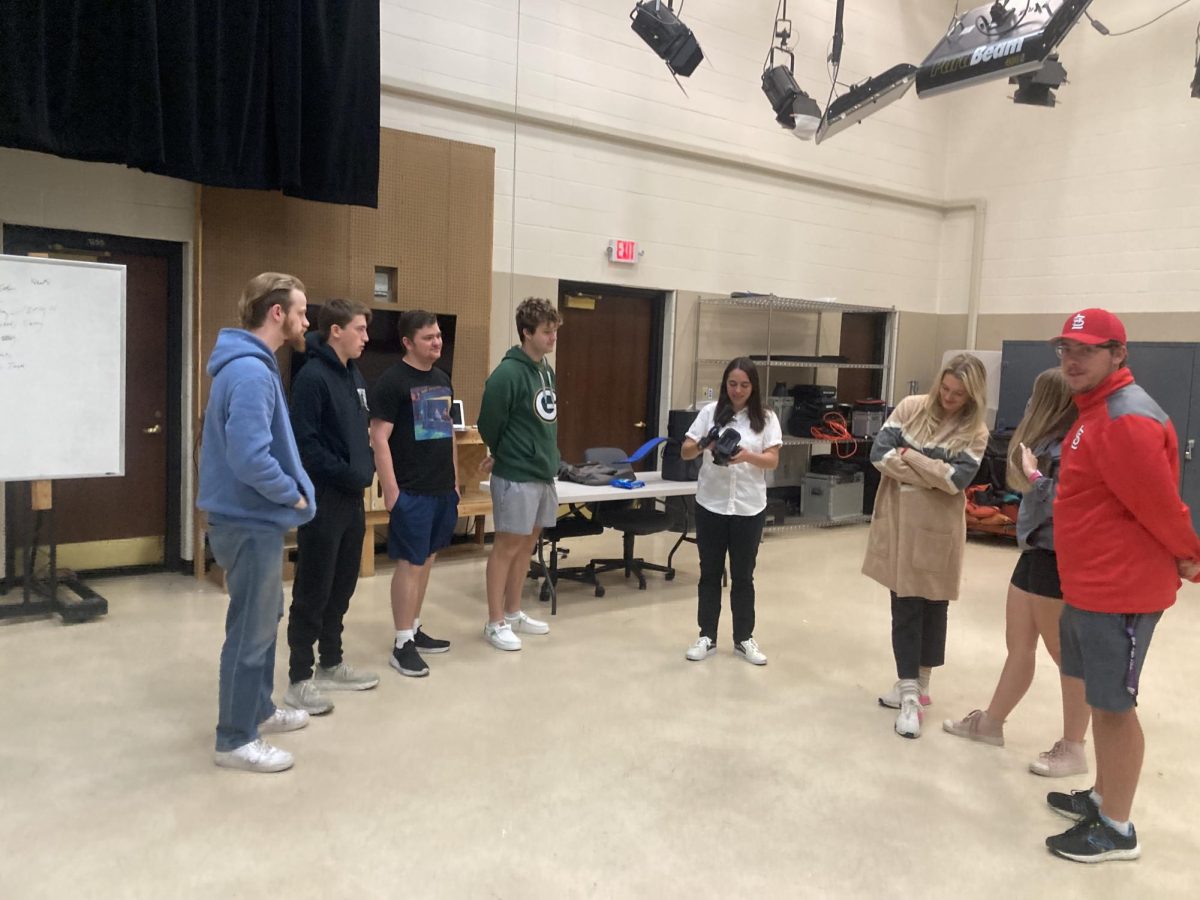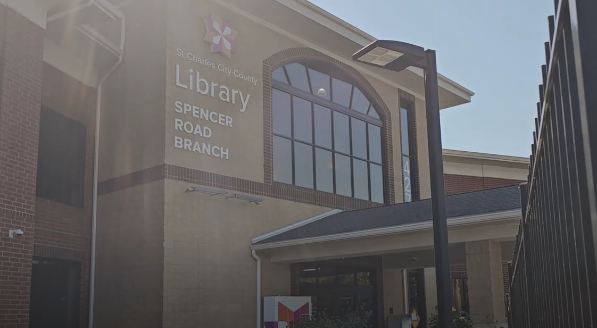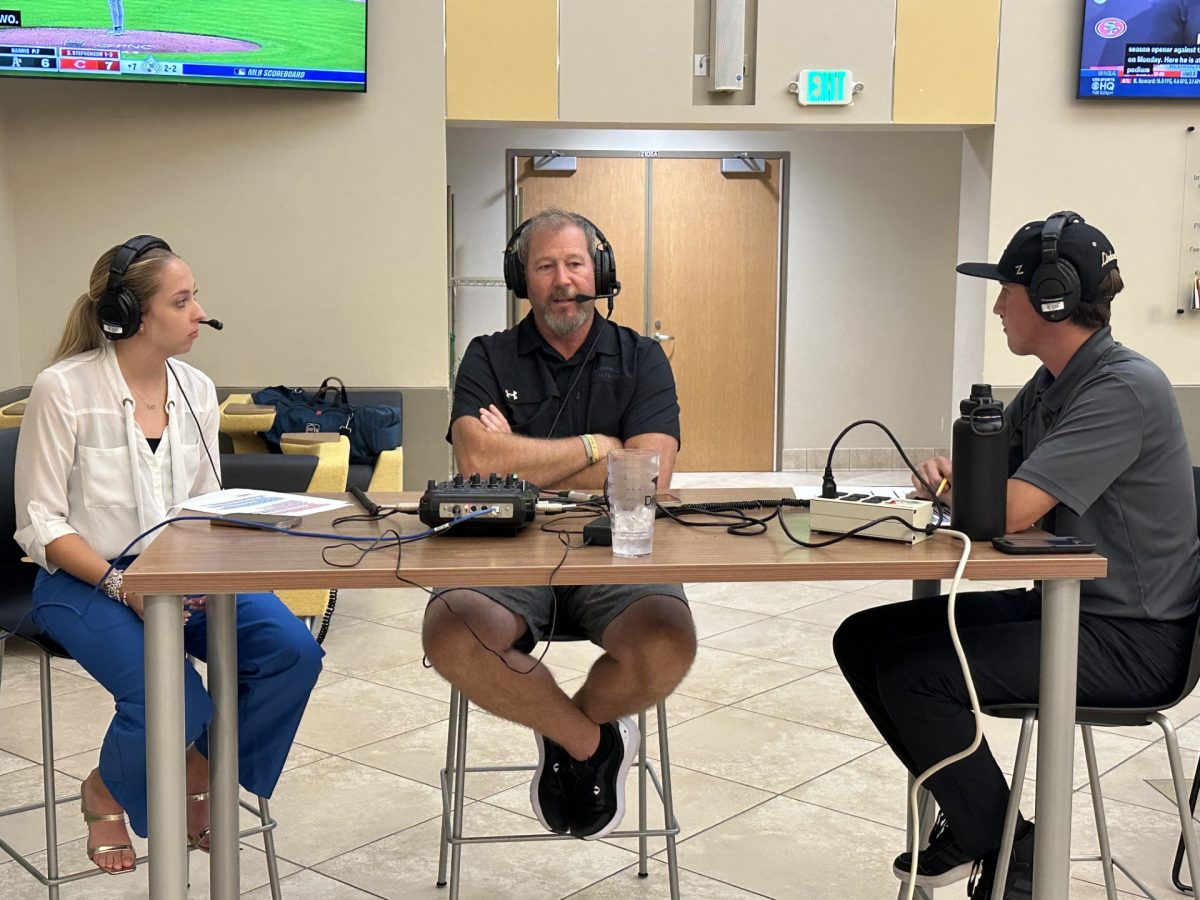Katie Brosamer-Senger | Reporting Student
Published May 5, 2015; 1:30 p.m.

Rao Ayyagari establishes a grant for students of cell biology or genetics.
On the second level of Young Hall, a man wearing wire rimmed glasses sits in his office grading one of his notoriously difficult tests. He is by no means a large man, but his presence has commanded the attention of his students for more than three decades. After this semester, Professor Rao Ayyagari will retire.
However, his legacy as a lifetime educator will continue at Lindenwood with an endowed scholarship grant that he and his wife have established to help fund students who are interested in doing undergraduate research in the fields of cell biology or genetics.
When he speaks, his accent lets you know that the United States was not his first home. Born in a small village of about 400 people in rural India, Ayyagari comes from a very poor family.
Coming from such humble beginnings, his parents knew that a good education was important.
He said his father worked very hard to put him, his brother and his four sisters through school.
“He worked very hard, like four jobs a day,” Ayyagari said of his father, “Plus he would take care of the family, cook and everything else. A very dedicated man; I don’t see people like that anymore, myself included.”
At only 14-and-a-half years old, he had already graduated from high school. He said he didn’t want to waste any chances. After his mother passed away from tuberculosis, he moved to Bombi, Mumbai, with his uncle, where he continued his education.
After completing his bachelor’s degree and finishing his master’s degree from Mumbai University in 1965, Ayyagari went to work as a chemist for the Indian government in the Nuclear Energy Program. He worked there for about three years, then switched to biochemistry work with yeast.
At the age of 24, he continued his study of molecular biology at Loyola in Chicago.
After the completion of his PhD, he moved to California to do post-doctoral work at the University of California, Davis. There, he did research with breast cancer and mitochondrial DNA.
During his time in California, he married his wife, Subhadra, through the traditional customs of an arranged marriage.
“My wife actually has a genetics master’s degree, and she was also doing research at that time,” Ayyagari said. “We decided that one of us will change and do something else, and computer work was just getting started. So my wife went and got a computer science degree. Her first job was in St. Louis.”
Before moving to the St. Louis area, Ayyagari had had some experience with academic work, teaching at the University of Michigan-Dearborn.
Once his wife found a job down in St. Louis, he gave up a potential tenure track job there and moved without any job prospects.
He taught at some of the local colleges before teaching full-time at Lindenwood in 1983. After a few years, Ayyagari created the biochemistry and nutrition classes.
His expectations as a teacher have never faltered in his 32 years of teaching.
Senior biology student Pablo Molina, who has worked with Ayyagari for his undergraduate research, said, “His tests are extremely challenging, the best way to study for them is to know everything, because you never know what he might ask.”
“I know that I am a hard teacher, but if you set the bar high, students will try to reach it,” said Ayyagari. “We have to work hard to achieve what we want. It’s not enough to do average work, you need to do better than average, or excel at it.”
Chair of the Biology Department Greg Anderson said, “He expects a lot out of his students, and they usually resent him for it initially.” He said,
“They think he’s too hard, or he’s not fair. But he is also one of the only professors who get letters from former students years down the road thanking him for how tough he was.”
Ayyagari received the Scholar of the Year Award in the 2010-2011 school year, as well as, the President’s Scholar-Teacher Award in 2013-2014. He will retire with emeritus status, which is a high honor for retired professionals to be remembered as a successful teacher.
He has taught many courses at Lindenwood, ranging from biophysics to microbiology. The two courses he taught consistently though were cell biology and genetics.
That is why he and his wife have started an endowed scholarship grant for undergraduate research in the fields of cell biology or genetics. This $25,000 grant, in which each recipient will receive $1,000 as a personal check, is to help fund their research through the school.
The first recipient of the award was Marco Moreno Imery, announced at the Honors Convocation on April 19.
“His legacy will be that permanent support for research,” Anderson said, “No matter what the administration does, there will always be that support from Rao. He will be immortal though that scholarship.”
Ayyagari is hopeful that, not only will this scholarship inspire other faculty members to do the same, but that it will also inspire the students to continue their research.
He said, “At the end of the day, what are you going to look for? It’s not ‘X’ amount of money, it’s your accomplishments and your satisfaction in life that is going to count.”







